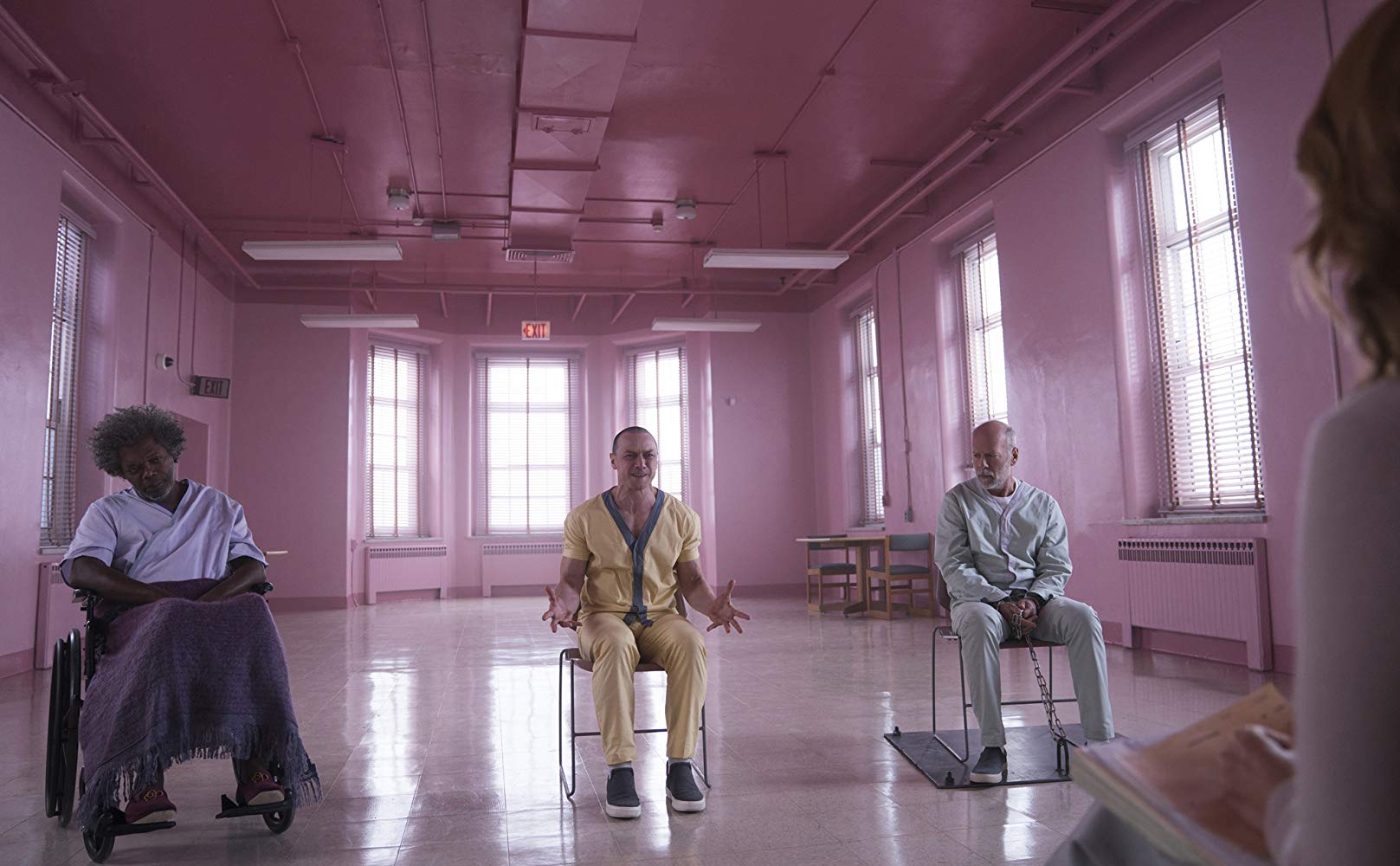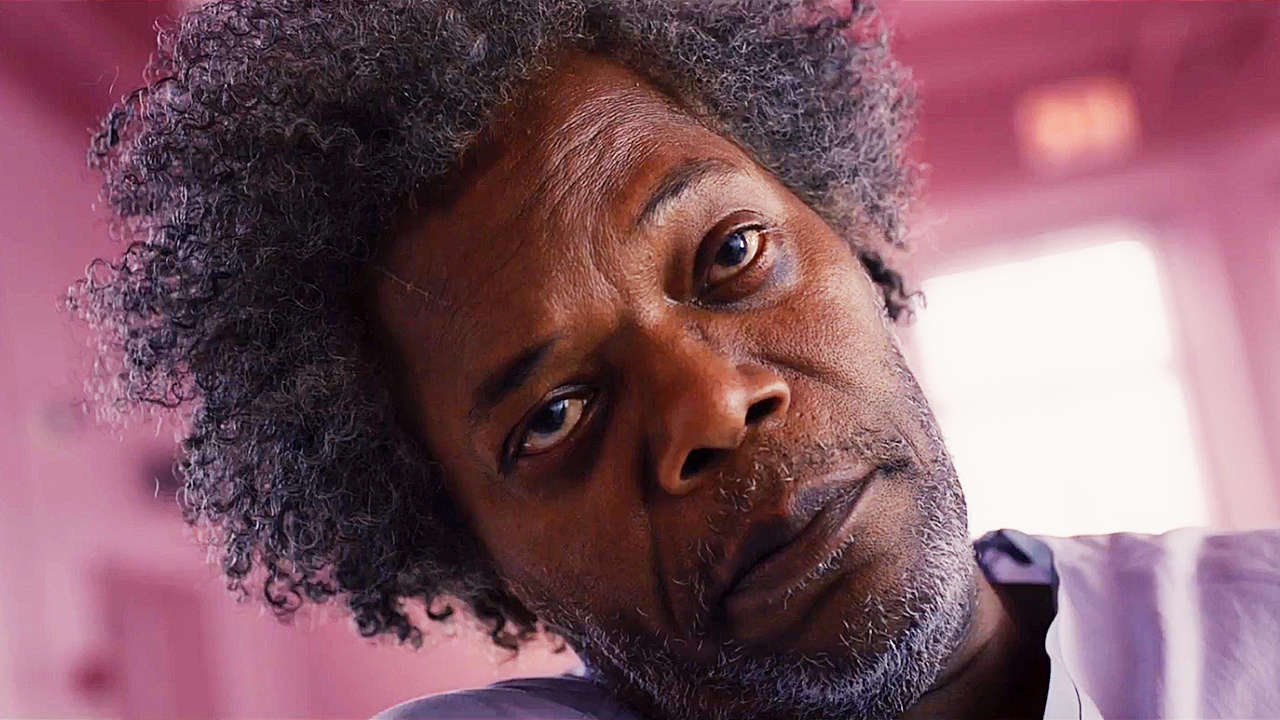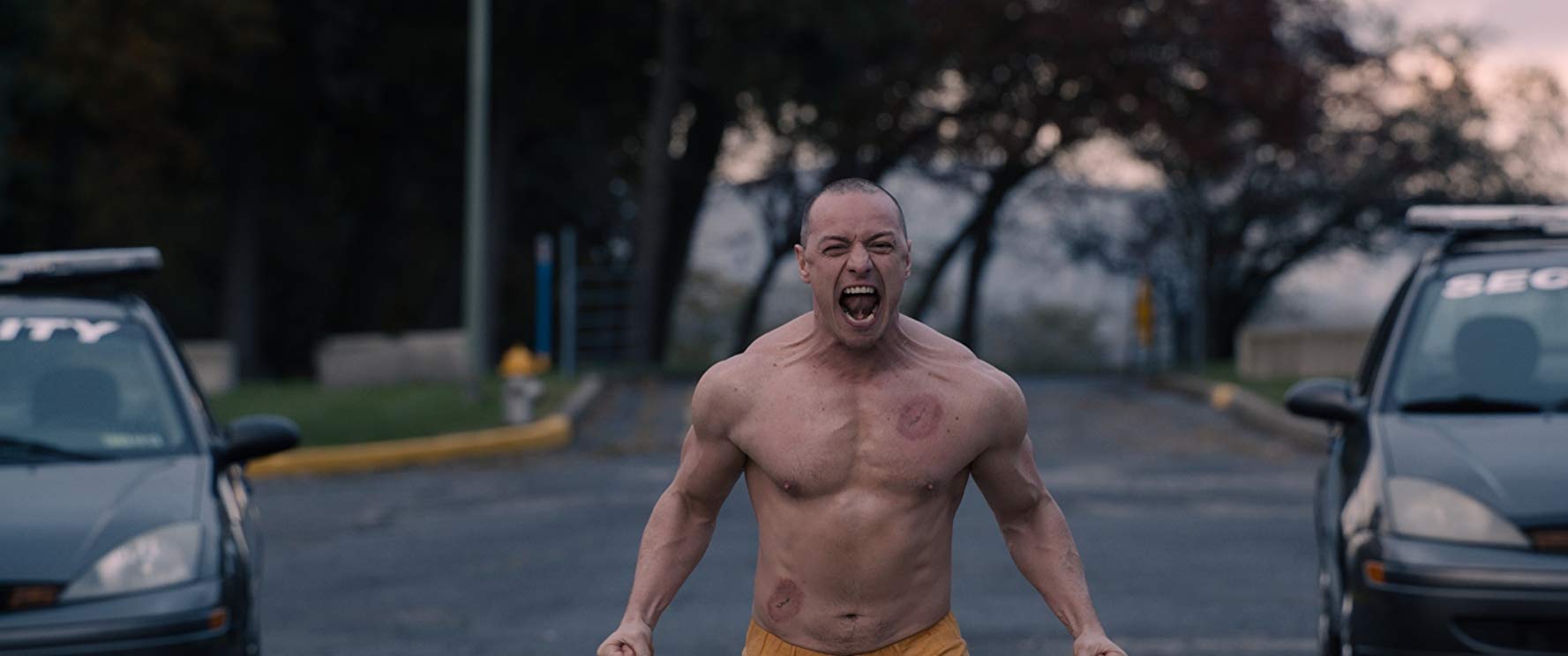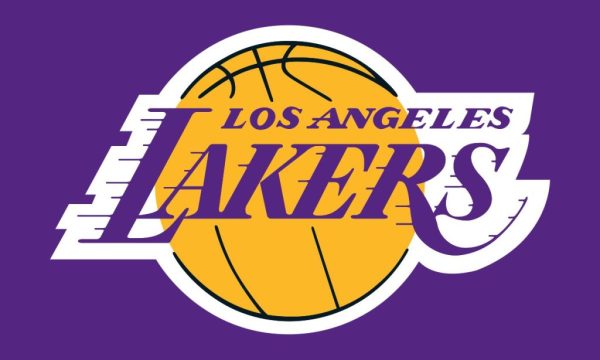
M. Night Shyamalan brings together three unforgettable characters from two of his previous films – “Unbreakable” and “Split” – to conclude his under-the-radar Eastrail 171 trilogy with “Glass,” an unexpected and unnecessary, yet somehow still entertaining, comic book thriller starring Bruce Willis, James McAvoy and Samuel L. Jackson.
Coming off his sleeper hit “Split,” which was only revealed to have a narrative connection to 2000’s “Unbreakable” in the very last scene, with “Glass,” writer-director M. Night Shymalan shows some signs of strain in binding these two universes into a convincing whole, though his ability to spin a compelling yarn that poses some fascinating existential questions hasn’t diminished in the slightest. Featuring an eccentric but engaging storyline rooted in thrills and comic book lore that is sure to appeal to today’s audience, eye-pleasing camerawork that nicely blends CGI into its real world setting, and a trio of strong performances from the veteran cast, especially James McAvoy’s character(s) who suffers from split personality disorder, audiences may walk away from “Glass” dissatisfied with the resolution, but they will definitely be entertained along the way.
 To refresh, “Unbreakable” centered on David Dunn (Bruce Willis), a Philadelphia security guard and the soul survivor of a catastrophic train crash. Through his interactions with a comic book collector named Elijah Price (Samuel L. Jackson) who suffers from a rare condition that renders his bones extremely brittle, Dunn discovers that he not only has superhuman strength but that he is “unbreakable,.” Dunn also has the ability to intuit the misdeeds of those around him solely through physical contact, and it is through this last skill that Dunn learns of Elijah Price’s true identity, a supervillain named Mr. Glass.
To refresh, “Unbreakable” centered on David Dunn (Bruce Willis), a Philadelphia security guard and the soul survivor of a catastrophic train crash. Through his interactions with a comic book collector named Elijah Price (Samuel L. Jackson) who suffers from a rare condition that renders his bones extremely brittle, Dunn discovers that he not only has superhuman strength but that he is “unbreakable,.” Dunn also has the ability to intuit the misdeeds of those around him solely through physical contact, and it is through this last skill that Dunn learns of Elijah Price’s true identity, a supervillain named Mr. Glass.
Moving ahead sixteen years, “Split” told the seemingly standalone tale of Kevin Crumb (James McAvoy), a victim of childhood abuse who suffers from dissociative identity disorder. Boasting twenty-three distinct personalities collectively called The Horde, Kevin kidnaps teenage girls in the interest of feeding them to the most monstrous of his alter egos, a superhuman being called The Beast. In the film’s final scene, while diner patrons watch a news report about Kevin Crumb being on the lam, David Dunn from “Unbreakable” is revealed to be one of those patrons, thus tying these two films into the same universe.
And so we arrive at “Glass,” again set in Philadelphia, this time in the weeks after the events of “Split.” David Dunn runs a security business with his grown son Joseph (Spencer Treat Clark) by day and operates as a vigilante named The Overseer at night. Dunn’s primary objective of late is putting a stop to Kevin Crumb’s ongoing reign of terror. After tracking Crumb back to the brick warehouse where he has his latest crop of teenage cheerleaders kidnapped, Dunn runs afoul of Crumb’s alter ego, The Beast, which results in some superhuman fisticuffs that lands the two strongmen in Raven Hill Memorial, a mental asylum that also houses the infamous terrorist and comic book collector Elijah Price aka Mr. Glass. There, under the watchful eye of Dr. Ellie Staple (Sarah Paulson), a psychiatrist who specializes in patients who believe they are superheroes (duh!), the three patients are evaluated and led to believe that their superhuman abilities are merely delusions of grandeur. But while characters and moviegoers alike try to unravel whether these special powers actually exist, the frail title character comes up with his own diabolical means to get at the truth.
 Given the incessant popularity of comic book films and thrillers, it is unsurprising that writer-director M. Night Shymalan would want to revisit the characters, storyline and themes of his films “Unbreakable” and “Split,” and there’s no question that the target audience will salivate over this material. But while Shymalan does find novel ways to explore some compelling philosophical questions about what it means to be a superhero, they’re not fascinating enough to justify tying together these two disparate storylines and halfheartedly deeming “Glass” the final chapter of a trilogy. Still, through his distinctive storytelling and undeniable mastery of his craft, and with the help of his ace technical team, the veteran filmmaker pulls together enough slick twists and muscular action sequences to keep viewers engaged, an eye roll or two notwithstanding. You may walk away from the experience wondering just what in the hell exactly happened over the previous two hours, but when you’re in the thick of the superhero madness, you’ll be too fascinated to concern yourself with these logical gaps.
Given the incessant popularity of comic book films and thrillers, it is unsurprising that writer-director M. Night Shymalan would want to revisit the characters, storyline and themes of his films “Unbreakable” and “Split,” and there’s no question that the target audience will salivate over this material. But while Shymalan does find novel ways to explore some compelling philosophical questions about what it means to be a superhero, they’re not fascinating enough to justify tying together these two disparate storylines and halfheartedly deeming “Glass” the final chapter of a trilogy. Still, through his distinctive storytelling and undeniable mastery of his craft, and with the help of his ace technical team, the veteran filmmaker pulls together enough slick twists and muscular action sequences to keep viewers engaged, an eye roll or two notwithstanding. You may walk away from the experience wondering just what in the hell exactly happened over the previous two hours, but when you’re in the thick of the superhero madness, you’ll be too fascinated to concern yourself with these logical gaps.
Reprising his role as the unlikely superhero David Dunn, Bruce Willis eases back into the unbreakable character with little signs of strain, even if it is a rather undemanding role at its core. Similarly, Samuel L. Jackson taps into his evil side once again as the joyously diabolical mastermind title character who seems only truly at peace when plotting his next nefarious act. But as viewers might expect, the star of the show here is James McAvoy, whose ability to seamlessly slip in and out of his character’s multiple personalities is truly something to behold. The supporting performances of “Glass” are largely of the serviceable variety, with Sarah Paulson as the superhero psychiatrist and Anya Taylor-Joy, reprising her role from “Split” as kidnapping victim Casey Cooke, proving the most memorable of the lot.
“Glass” is a strange yet intriguing superhero thriller that is as mystifying as it is mesmerizing.
By Lucas Mirabella
Running Time: 129 Minutes
Rated PG-13 for violence including some bloody images, thematic elements and language.














